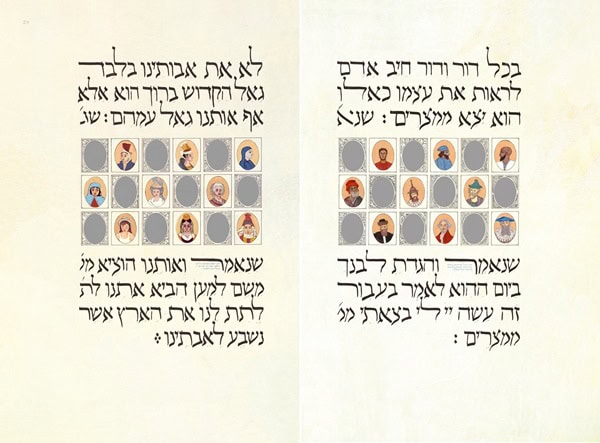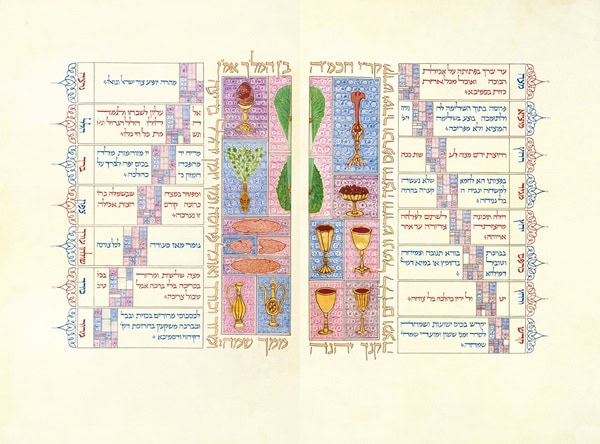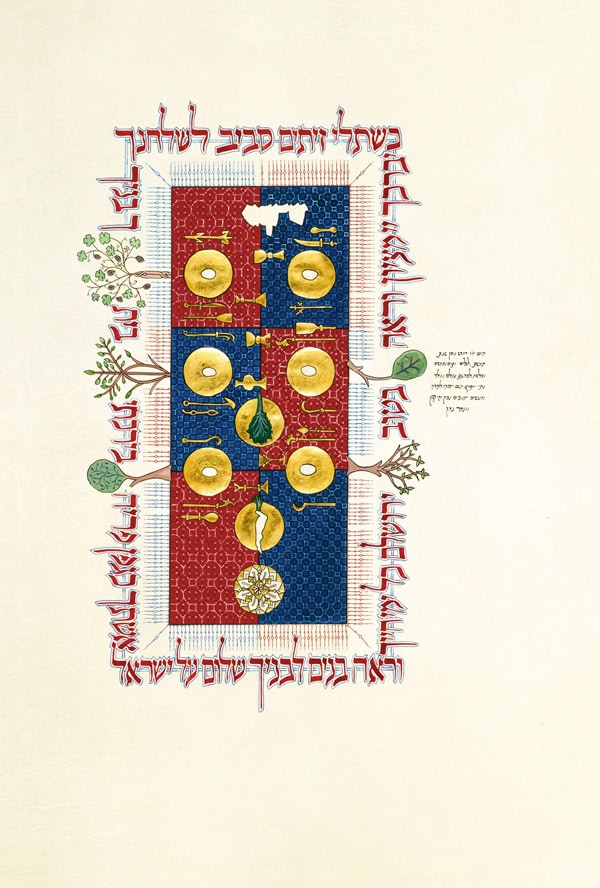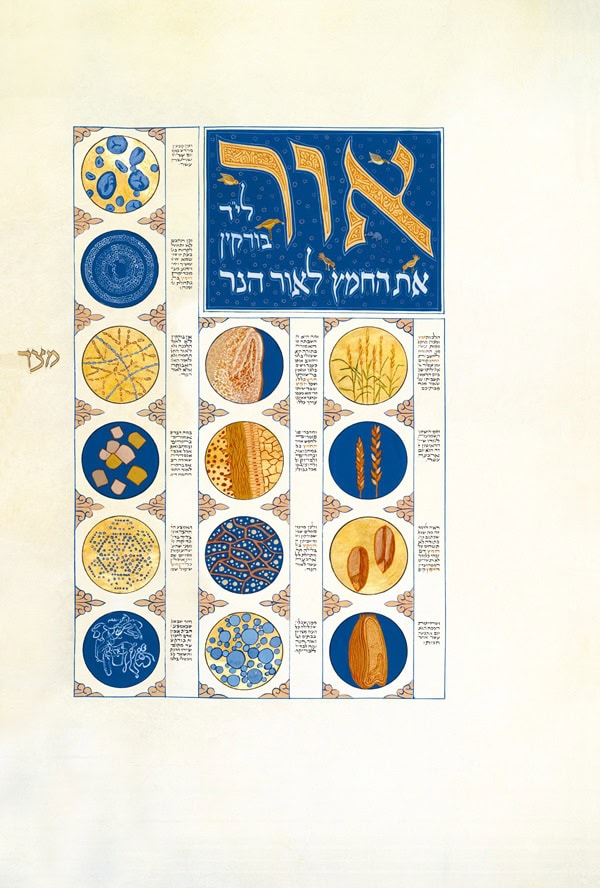The National Library of Israel has received the original version of a modern masterpiece of Hebrew manuscript illumination: the Moss Haggadah. Created by renowned Judaica artist David Moss, it is a large-format, handwritten and hand-illuminated rendition of the classical Passover seder liturgy in a traditional style.

The original manuscript includes calligraphy, micrography, numerous painted miniatures, and designs using gouaches, acrylics, egg tempera, inlaid mirrors, parchment cuts and burnished pure gold leaf on parchment sheets. Because Moss did not intend for the manuscript to be reproduced, the original has features produced using handcrafted techniques such as lacy cut-outs incised with a surgical scalpel.
The Moss Haggadah was presented as a gift by donors Trudy Elbaum Gottesman and Robert Gottesman at an Aug. 6 ceremony at the library.
Moss devoted three years on three continents in the 1980s to full-time work researching, conceiving and executing a commissioned Haggadah.
In 1992, Moss was awarded the Israel Museum’s Jesselson Prize for Contemporary Judaica for, among other works, his Haggadah.

The Moss Haggadah has been exhibited at the New York Public Library, Yeshivah University Museum, Harvard University Libraries and the Library of Congress. Facsimiles have been exhibited or acquired for the permanent collections of major museums, universities and galleries in North America, the United Kingdom and Israel.
A copy was presented by President Ronald Reagan to Israeli President Chaim Herzog in 1987 as the official gift on the occasion of the first state visit of an Israeli president to the United States.
Moss said at the ceremony earlier this month, “I began my Haggadah manuscript in 1980 with months of research in Jerusalem’s rich libraries. On completion, it was delivered abroad and reproduced in several beautifully printed editions. I’m exceptionally grateful the original is finally ‘coming home’ to Jerusalem and its rightful place at the National Library, where it will be reunited with its sources, preserved, studied, and, I hope, enjoyed for generations.”




























